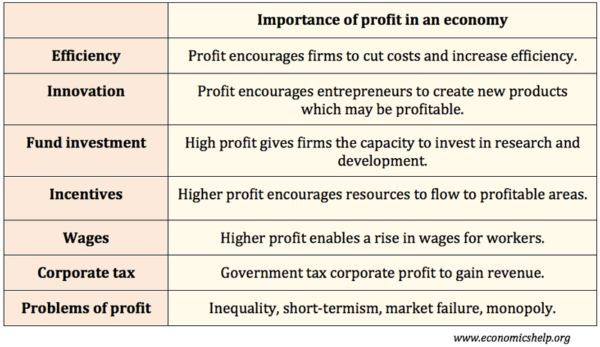Profit Motive Definition Economics

It is the profit that motivates an entrepreneur to undertake business.
Profit motive definition economics. There is a desire to offer a good service even in public sector where the state pays for health care. Because of the profit motive people are induced to invent innovate and take risks. In economics the term applies to a basic motivation that can be used to describe the expected behavior of firms individuals and markets such as the stock marketThe profit motive isnt the only motivation that drives firms.
The profit motive notion is closely related to the concept of self-interest. When output expands a firms production costs tend to rise therefore a higher price is needed to cover these extra costs of production. Virtually every large company was started by an entrepreneur seeking to earn a profit.
The force that encourages people and organizations to improve their material well-being. A gain benefit or advantage. Economics Chapter 3 Vocab.
The profit motive is an economic concept which posits that the ultimate goal of a business is to make money. How is the profit motive supposed to work. In a market economy this profit motive serves as an incentive in allocating resources in the production of a commodity in accordance with the needs and tastes of the buyers.
In the free market economy the profit motive is the ultimate purpose of a commercial enterprise to earn a profit. Characteristic of capitalism and free enterprise. The profit motive is the incentive for businesses to strive to maximize profits.
As modifier. Modern capitalist theory is traditionally traced to the 18th-century treatise An Inquiry into the Nature and Causes of the Wealth of Nations by Scottish political economist Adam Smith and the origins of capitalism as an economic system can be placed in the 16th century. Any editing you need to do go ahead i hope this helps.










